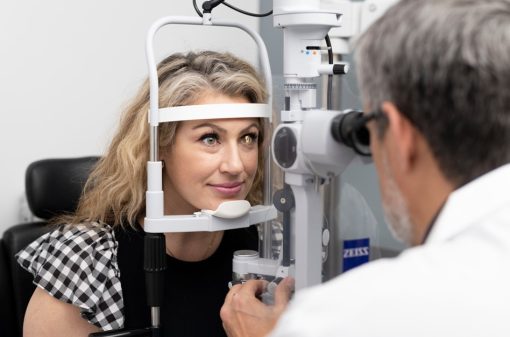
What’s Holding People Back from Getting an Eye Exam?
Author: Dr. Alan Ulsifer
A look into common misconceptions and what we can do to change those perceptions
This month, we are releasing new data and insights into eye care delivery in North America, specifically focusing on why people don’t schedule eye exams. Misconceptions can present a significant challenge for the optometric profession today, and we all notice and feel them. Let’s discuss the current trends that we are observing, their impacts on the industry, and what we can do to support our future optometrists and provide high-quality patient care.
The sober reality of eye care in Canada today (Source, L. Catterton)
- Blindness is the third most feared disease behind Cancer and Heart Disease
- 1 in 4 Canadians who don’t wear glasses have not had an eye exam in about 10 years
- 16% of Canadians were over 31 years of age when they had their first eye exam
- 75% of vision loss is preventable if caught early
- 728,000 of Canadians are impacted by Glaucoma
Despite insurance coverage, patients are still avoiding eye exams. Canadians who do not wear glasses claim that deterrents, such as cost (29%), no eyesight issues or symptoms (28%), and inconvenience (28%) are reasons for putting off eye exams.
New research published by the Vision Council reveals a similar trend among Americans’ perceptions relating to eye exams.
Of those who did not have an eye exam in the last 12 months…

Source: Consumer inSights Q3 2023. The Vision Council.
We must advocate more loudly for the importance of vision health and take responsibility for the public’s lack of knowledge about our profession and its contribution to overall health.
The dentistry profession has done an excellent job in educating the public, employers, and vision benefit carriers on the importance of preventative care. If the optometric profession does not replicate this, we may be stuck in a world where it is all about product, not health. We know these markets exist; where patient care is not placed first and foremost.
Of those who did have an eye exam in the last three months…

Source: Consumer inSights Q3 2023. The Vision Council.
Each generation is more likely to have an eye exam at an independent eye doctor’s office than at a corporate location. However, this preference is much higher among older generations.
When selecting an eye care provider, people rank proximity, a personalized experience and ease of scheduling as the most important elements. In addition, product warranties and ease of insurance are important experiences for repeat business.

Source: Consumer inSights Q3 2023. The Vision Council.
Of those who had an eye exam in the last three months…
Independents have this innate belief that patients love this modality much more than any chain competitor. Although independents, as a group, generally score higher, they are not the highest. Bain, the inventors of NPS, found that Costco rated higher than independents.
Data shows us that comprehensive eye exams can be a nonessential form of healthcare when people don’t have vision problems. However, what people may not know is that getting an eye exam is more than simple vision screening. An optometrist can detect early signs of diseases such as age-related macular degeneration, cataracts, glaucoma, and diabetes. The team at VSP Vision Care are the first to report they’ve been able to detect:
- Diabetes: 34% of the time
- High Cholesterol: 62% of the time
- High Blood Pressure: 39% of the time
We must expand our communication efforts and share with people the benefits of scheduling a regular eye exam as part of their overall health screening.
In conclusion
Collectively, we, as optometrists, are a community. Although we may have different modes of practice and business arrangements, patient care is paramount among us all. At FYihealth group, we believe we are “better together,” and I believe this should also apply to us as a profession. Let’s continue to move the needle in enhancing the awareness of our profession and educate the public as much as possible on the importance of regular and comprehensive eye examinations.
At FYihealth group, we’re fortunate to have industry partnerships that offer us insights into this compelling data. We learn of key findings that can truly support the future of our profession. This, coupled with my experiences, is why I have chosen to start this digest. Stay tuned for my next issue where we shift our focus from eyecare to eye wear in North America.
